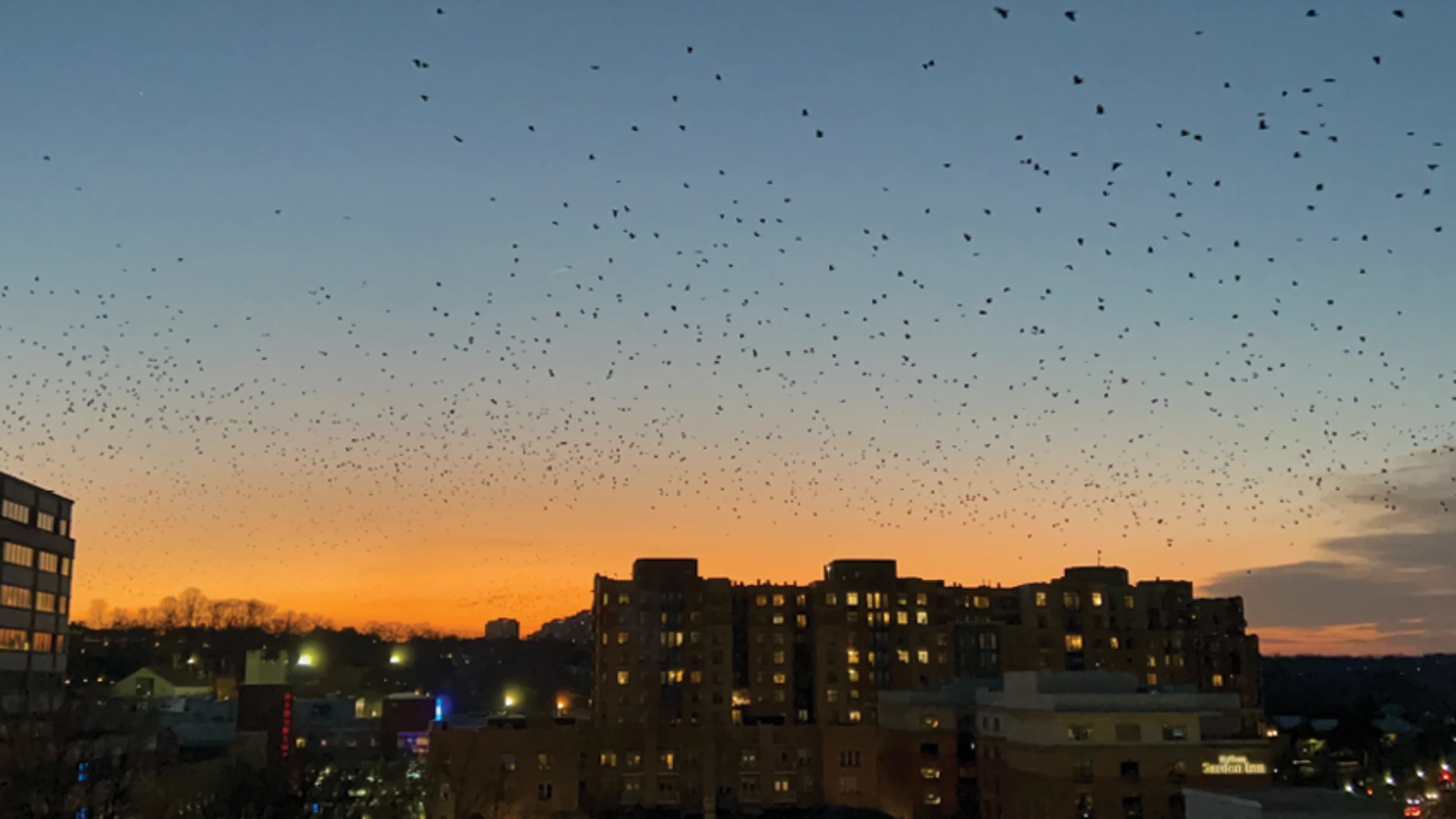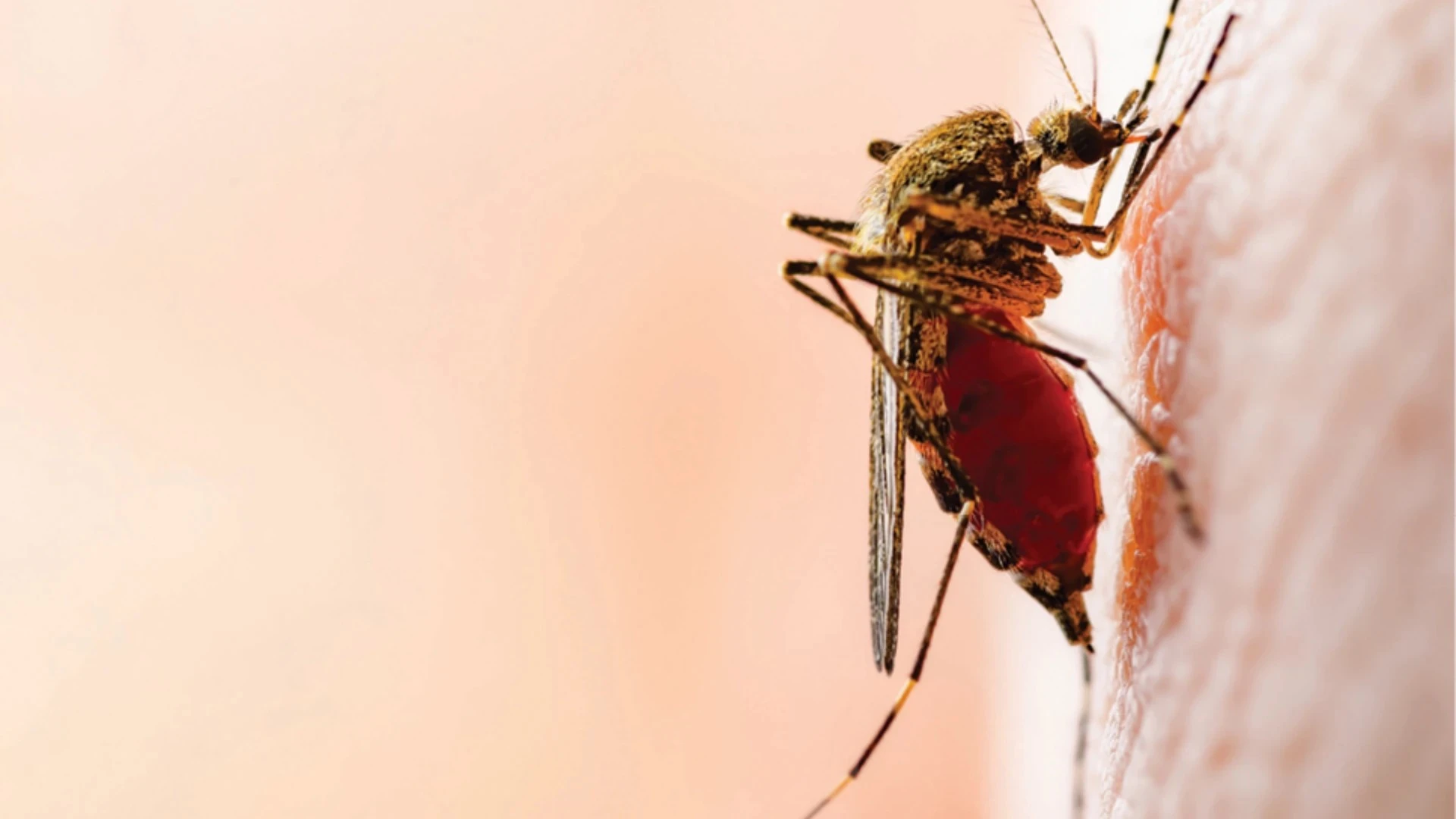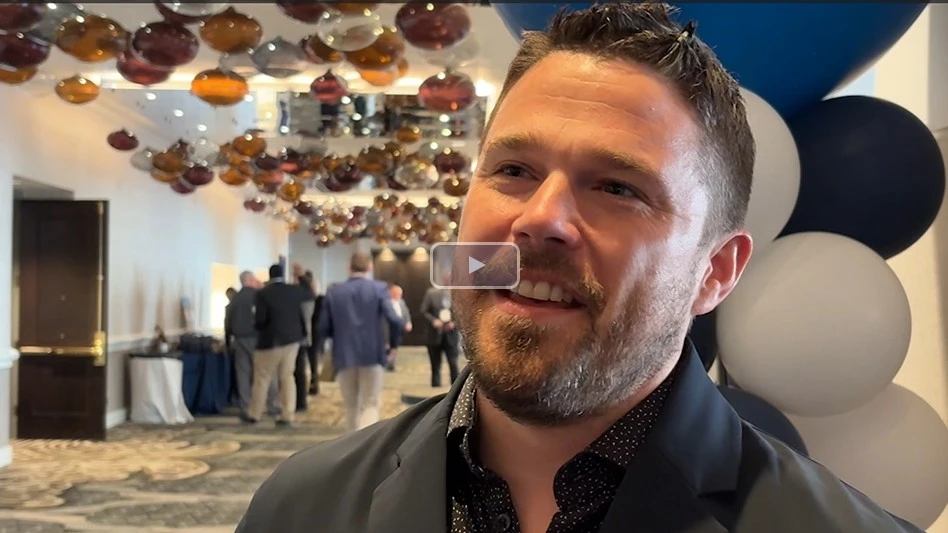The stories appear in newspapers and on TV news on a daily basis: "West Nile Virus Spreads Throughout Metropolitan Area"; "Local Man Dies of Hantavirus"; "Cockroaches Suspected of Spreading SARS Virus."
These headlines have many PCOs seeing "green" — as in dollar bills. It only makes sense that a public demanding to be safeguarded from potentially life-threatening pests would seek out the services of pest management professionals. Why not take advantage of these situations and market the fact that, as a PCO, you are a protector of public health? After all, managing disease-carrying pests and eliminating conducive pest conditions is one of a PCO’s most important functions. It is, however, a role that comes with certain risks and responsibilities. In capitalizing on public health opportunities PCOs could become involved in services outside of their realm of expertise and actually damage their reputation. Of greater significance, PCOs walk a fine line between making the public aware of their services and preying on people’s fears.
Should PCOs aggressively market themselves as protectors of public health to take advantage of recent developments or should the industry "pull back the reins" and proceed with caution? If one uses history as a guide, the latter approach may be the most prudent.
CART BEFORE THE HORSE? Anytime a potentially pest-related disease is reported there will be a temptation to immediately jump at this service opportunity. But a look back at the not-so-distant past suggests that this is not always in the industry’s best interest.
In the late ’80s, speculation about the pos-sible linkage of AIDS and insects generated sensational news in the U.S., including an in-depth feature in The Atlantic Monthly, which PCT reproduced. Many stories focused on residents of mosquito-rich Belle Glade, Fla., where the incidence of AIDS substantially exceeded the national average, prompting some to speculate that arthropods, including mosquitoes, were perhaps a factor in the disease’s transmission. However, research quickly disproved the AIDS-mosquito connection.
In April of this year, media reports circulated that Hong Kong officials were testing cockroaches from a heavily infested apartment building to investigate whether or not cockroaches were spreading SARS — Severe Acute Respiratory Syndrome. (See related story below.)
Several entomology researchers contacted by PCT drew an analogy between these events and the late ’80s AIDS-mosquito link reports. "The idea was that mosquitoes could be harboring the AIDS virus in certain refugiums, but that was shown not to be the case," said Don Reierson, an entomology researcher at the University of California, Riverside. "With these SARS reports I would be very careful making any relational presumptive judgments."
In fact, the initial SARS-cockroach connection was largely media-driven, according to Dr. Coby Schal, a professor of urban entomology at North Carolina State University.
"My understanding is this information came from a health official in Hong Kong who had thrown it out as a possibility — he had no idea how remote a possibility it was," Schal said. "Then it was picked up (by the media) and people were talking about it as if it were a certainty. To my knowledge, I know of no evidence whatsoever that this link exists. That’s not to say it doesn’t, but to my knowledge there has been no research to show it does or doesn’t exist."
While industry professionals have the knowledge and understanding to identify those media reports that are credible, the general public may not. For example, in the weeks following reports of the possible SARS-cockroach link, 19 percent of PCOs polled by PCT magazine said they had customers ask them about the relationship between roaches and SARS.
Of course, a PCO confronted with this question will explain to customers what his company, colleagues, researchers and others know about the possible link. But then what? Do PCOs aggressively "sell" the customer on the need to contract for services that may protect against a public health threat, or are their roles limited to that of educator and service provider? Herein lies the dilemma.
PCO REACTION. Opinions vary among pest management professionals as to how aggressively (or if at all) the industry should market its public health services. According to a recent online survey by PCT magazine, 61 percent of respondents reported that their company does market itself as protectors of public health.
"Yes, we market ourselves as protectors of public health. We have always felt we are involved in that aspect of the business more so than just being applicators of pesticides," said Billy Tesh, president of the Greensboro, N.C.-based Pest Management Systems.
But other PCOs say they don’t market themselves as public health protectors. For example, in regards to West Nile virus (WNV), some PCOs say their services have not been needed — at least not yet.
"One of the reasons we have not considered this type of promoting yet is the fact most of New England and other northeastern states have strong mosquito surveillance programs because of the endemic presence of eastern equine encephalitis (a pathogen related to WNV), which is much more virulent than WNV," said Richard Berman, manager, technical services, Waltham Services, Waltham, Mass.
While mosquitoes rank highest as the public health pest that consumers are most concerned about (think West Nile virus), there are other pests that cause PCOs’ phones to ring. According to PCT’s online survey, mosquitoes, followed by mice (hantavirus), cockroaches (allergens) and house flies (salmonella/dysentery) are of greatest concern to customers.
So just how should pest management professionals handle customers who are frightened by pests and the diseases they may (or may not) spread/carry?
"I don’t think it’s fair to use this to ‘scare’ people into contracting services with PCOs," says Jeff Van Diepen, president, Pestmaster Services, Bishop, Calif. "Fear, however, is in the mind of the cus-tomer. I recommend that the Pestmaster staff deal in nerve-calming and have a pro-fessional approach to health-related pests. I don’t like to use ‘fear’ as a tool. However, when faced with the facts about these pests, the customer may well have a fear of the risks that are associated with them.
"Education is the key," he continued, "and we need to be well educated ourselves and be able to communicate the facts to our customers in an articulate manner."
Jay Bruesch of Fridley, Minn.-based Plunkett’s Pest Control, agreed. "We certainly think of ourselves as protectors of public health. But we’re not out there trying to push ourselves as protectors against West Nile virus or anything like that. It’s not our marketing ‘message.’"
Forty-three percent of respondents to PCT’s online survey said that as a result of increased news coverage of public health pests they planned to promote their company’s "public health" services more heavily in the coming year.
"We do not sell on ‘fear,’" said Bill Kolbe, Parsippany, N.J.-based Western Pest Services’ training/technical manager. "We actually play down the disease transmission issues because we don’t want them to think our program will prevent them from getting Lyme disease or West Nile virus. All we can offer is a pest reduction program based on a well thought-out IPM approach. Education is the key and letting them know we cannot guarantee mosquito or tick elimination."
Bruesch agrees. "On the subject of larvicidal (mosquito) treatments offered by pest management companies: I think that, if done only in very limited areas, this might create a false sense of security in the minds of both pest management professionals and their customers. In other words, if I treat potential mosquito egg-laying sites in your yard with larvicides and tell you that this protects your family from West Nile virus, that’s misleading because mosquitoes can fly in or be blown in on winds from untreated properties," he said. "If, on the other hand, I point out other things that can be done (eliminate standing water; wear repellents; stay inside during times of peak mosquito activity; consider residual treatments to turf and foliage for events of limited duration) in addition to larviciding, and tell the customer up front that larviciding has limited value but is a component of a larger effort, then that’s honest."
According to PCT’s online survey, 53 percent of pest management professionals said it is appropriate/ethical for pest management professionals to take advantage of the public’s fear of pests to promote their services. Thirty-nine percent said it is not appropriate.
Some say it’s just smart business to offer a service that is in demand, but it must be done responsibly.
"Yes, I believe it is appropriate to ‘take advantage’ of the opportunity to offer a service the public demands. But it needs to be done ethically and honestly, without making alarmist statements and dishonest claims," Berman said. "If the public wants such services, the private sector should make them available. Shame on us if we feed the public’s irrational fear of pests and the diseases they vector. We should express care and concern about their fear, put them at ease and help them reduce the risk of exposure to a real threat."
Terry Clark, vice president, Clark Pest Control, Lodi, Calif., agrees. "Whether it is appropriate to advertise this way is an individual judgment based on the services provided and the needs of the community. If the community is hit by an outbreak of a preventable disease and a local pest management professional is prepared and actually able to help lessen the impact of the disease then management may want to consider advertising specifically to let the community know that help is available. However, if sensationalistic marketing is used solely to instill fear in the mind of the public, the FTC should review the claims made and take the appropriate actions."
While many PCOs differ on how to market such services, most all, including Mike Rottler, general manager of Rottler Pest Control, St. Louis, Mo., agree that it’s never appropriate to intentionally scare customers about public health pests.
"Our industry is in a position to help people protect themselves against a significant threat," Rottler said. "In many cases the public is unaware that conditions exist on private property that threaten their health. Our people are in a position to identify, make recommendations and, in many cases, correct these conditions."
NPMA INITIATIVES. The Professional Pest Management Alliance (PPMA) was developed by NPMA in 1997 to raise awareness among consumers of the value of professional pest management services, protect the industry’s reputation and increase the size of the professional market. As such, PPMA plays a critical role in marketing the industry’s message to the public.
Cindy Mannes, PPMA executive director, recommends that pest management professionals "take the high road" when approaching the issue of insects and public health. "I don’t believe we need to leverage the public’s fears. The media is certainly doing a significant job of that," she said. Mannes adds that she would rather see the pest control industry position itself as "solution providers" that "enhance the quality of life" of its customers, while at the same time protecting the public’s health and property.
"As a solution-based industry with real answers, we can still grow and sell our services without exploitation," she added. "Should we continue to promote ourselves as protectors of public health and property? You bet."
To that end, the National Pest Management Association launched a series of public service announcements last spring that highlighted the important role the industry plays as protectors of public health and property. The ads, which have resulted in millions of "impressions" for the industry, have prompted a large number of media inquiries. "I’ve spent a lot of time this year answering media calls related to cockroaches and asthma, mosquitoes and ticks," Mannes said.
"Taking the high road and being aggressive in promoting your company as protectors of public health and property, which have provided a quality of life that we all have become accustomed to and which would not exist without our services, in my opinion, should be our mantra," Mannes said. "This is what we do. This is who we are."
The authors are editor and Internet editor of PCT magazine and www.pctonline.com.
|
Do Cockroaches Spread Sars? The pest control industry was abuzz when media reports began surfacing that cockroaches could possibly transmit SARS. These stories began circulating after Hong Kong officials began testing roaches from a heavily infested apartment building. In the weeks following the Hong Kong SARS outbreak, a team of the city’s public health scientists worked together to determine that the spread of SARS in the apartment building was the result of a faulty sewer system (pipes in walls) — not cockroaches. Dr. Bill Robinson, president of Urban Pest Control Research and Consulting, Christiansburg, Va., is a frequent visitor to China (which now includes the city of Hong Kong). Robinson has observed conducive pest conditions in both Hong Kong and mainland China. For example, in southern China, agriculture is more year-round and diverse than in other parts of the country, primarily because the climate there is hot and humid for much of the year, Robinson noted. He added that agriculture in the southern provinces has a long history, and part of that history is a close relationship between man and his farm animals — partly by tradition, partly by necessity. “In hot and humid conditions this can be a fateful mix,” Robinson said. “When microorganisms make the leap from animal to man, they are rarely successful; but the more it happens the more likely it is to succeed.” But this does not necessarily implicate roaches as a vector of SARS. In fact, Robinson said cockroaches should not be targeted until research proves otherwise. PCT also contacted leading entomology researchers to get their perspective and, like Robinson, they all agreed that conclusions should not be drawn about a possible SARS-cockroach link until more research is performed. They also were of a consensus that, based on what they know, there is a remote possibility cockroaches could spread SARS. “It’s within the realm of possibility but I don’t think it’s likely,” said Dr. Pat Zungoli, professor of entomology, Clemson University. “The connection was made based on one apartment building that had a sewage problem and part of their ventilation system was shared. As a coronavirus, which is what SARS is believed to be, it is passed from one person to another either aerially or by contact from one person to another.” The reason some believe there could be a connection is because roaches inhabit environments conducive to pathogens, such as viruses. “Especially if the virus is something that could attach to the cuticle,” said Don Reierson, an entomology researcher at the University of California, Riverside. “Cockroaches could essentially be mechanical vectors of the virus organisms, but these are questions we just can’t answer yet.” Mechanical transmission from cockroaches to humans often occurs when a roach picks up a contaminant (often by contacting fecal matter) and then transfers that pathogen to a Kleenex,™ eating utensil or other surface that might come in contact with a human. “Remember that a cockroach is a very inefficient vector,” said Dr. Coby Schal, professor of urban entomology, North Carolina State University. “Mosquitoes are efficient because when they bite, they work like a hyperdermic needle. Cockroaches can only indirectly expose humans, so a human would have to ingest cockroach feces.” In other words, it would take “a lot of roaches in the wrong places at the wrong times” to significantly spread the disease, Schal said. |

Explore the July 2003 Issue
Check out more from this issue and find your next story to read.
Latest from Pest Control Technology
- OvoControl Now Available in Chile
- Envu Announces Savings Programs for Pest Management Professionals
- Follow the Trail
- Carpenter Ants: Understanding the Bothersome Burrowers
- Massey Services Acquires Insight Pest Solutions of San Antonio
- Target Specialty Products Expands Sales Leadership Team
- Mosquito Joe Promotes David Price to Vice President of Strategic Growth
- Abell Pest Control Recognized as One of Canada’s Best Workplaces in 2025





